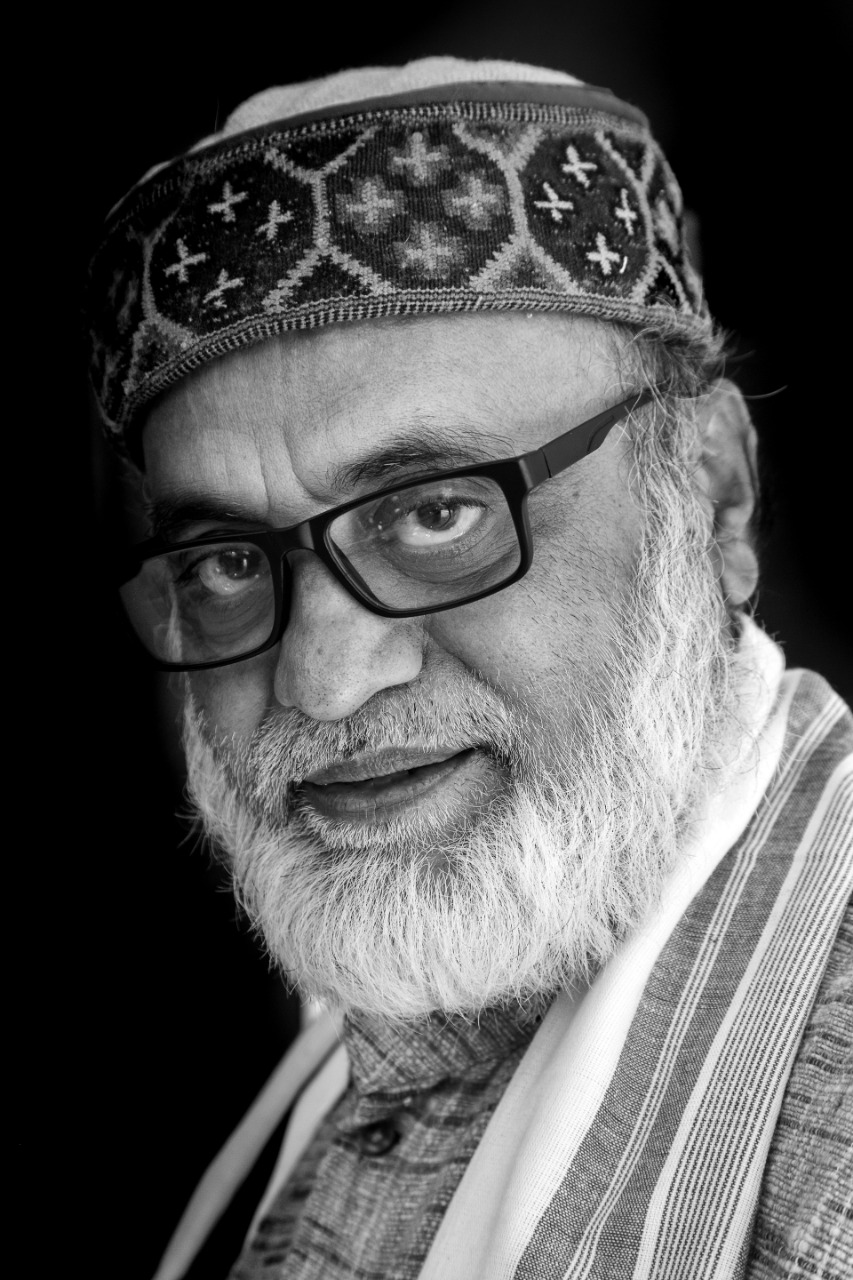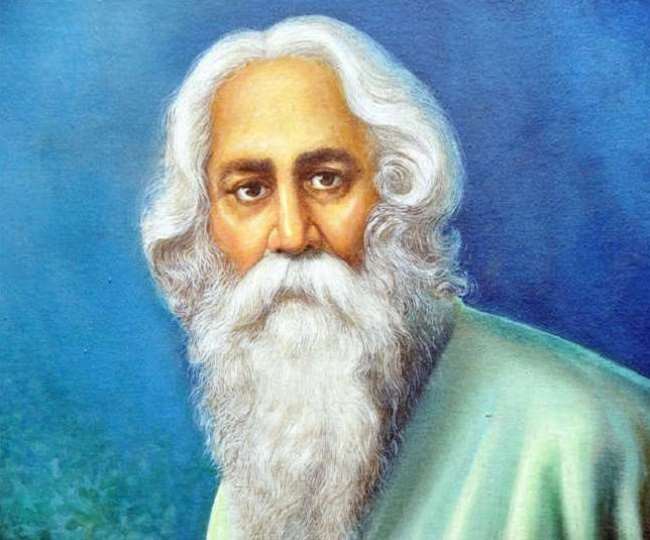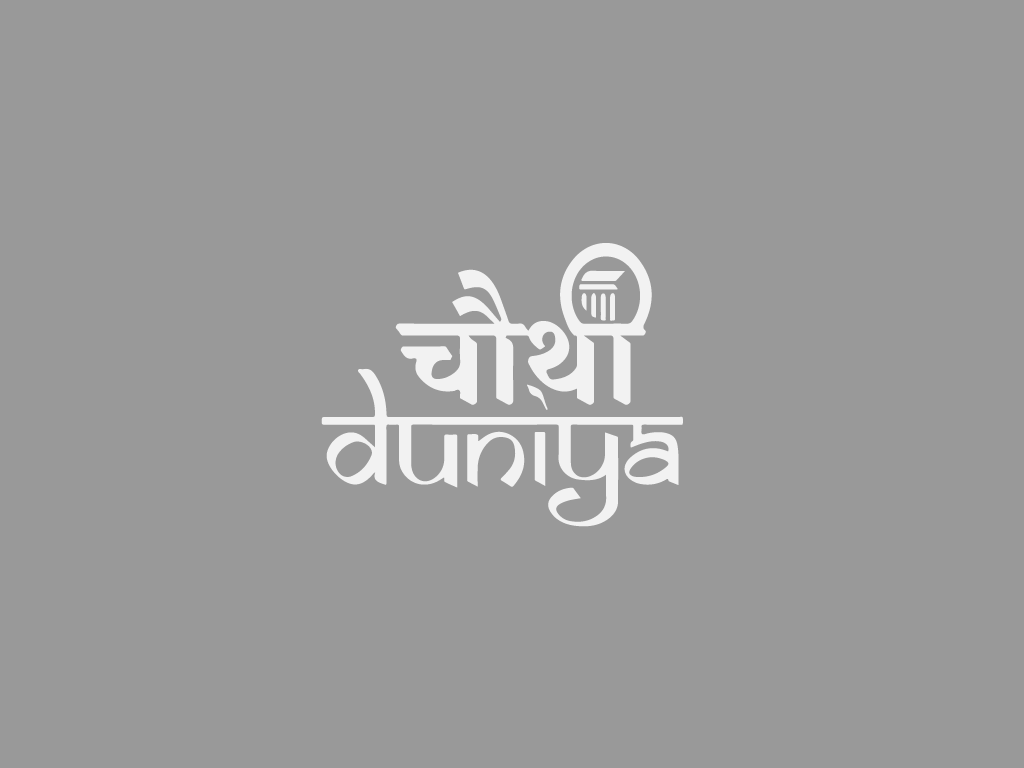The mythological tale of the demon Bhasmasur is well known. On whomsoever’s head he put his palm was burnt to ashes. Now-a-day the Sangh Parivar is bent upon converting itself into a later day Bhasmasur. It has started putting its hand on the heads of many of our national leaders–right from Swami Vivekanand to Yogi Arvind to Ramkrishna Paramhans, SardarVallabhai Patel and Mahatma Gandhi. And now it is the turn of Rabindranath Tagore.
The present supremo of RSS, Mohan Bhagwat , at a Sangh camp at Sagar (M.P.) claimed that it was Rabindranath Tagore who conceptualised a Hindu Rashtra first in his book Swadeshi Samaj (Marathi Daily Loksatta, Nagpur, 20-1-2015) . The first thing to note is that “Swadeshi Samaj” is not a book, but an essay of about 30 pages written immediately after partition of Bengal (1905) and deals with the scarcity of water in the area.
It does not contain any formal justification of Hindu Rashtra. On the other hand, it tells how the local people had earlier accommodated Aryans among them who had come here as invaders. The Aryans were followed by Muslims. The locals welcomed them also. In fact, Rabindra Babu elaborate on this quality of the region in this essay. The important thing to note in this context is that Tagore had always criticised the concept of nation-state. He insisted that it was an entirely foreign –European concept.
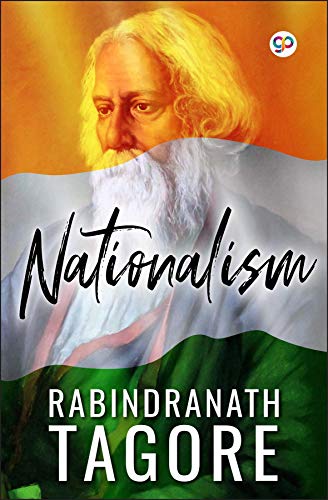
In his book Nationalism in India (1917) he had unambiguously stated that the political and economic basis of nationalism was entirely a mechanical endeavour to ensure increase in production and achieving prosperity by lessening the human burden. The concept of nationalism initially arose out of the desire to ensure national progress by recourse to advertisement and other media thus enhancing strength and prosperity. This concept of increase in strength has led to mutual hatred, dislike and fear and the resultant vitiating of the atmosphere making human life insecure . It was playing with the life of people because nationalism, besides dealing with outside factors was also utilised to control the internal situation of a nation. Under it there was an increased control over society. Consequently, the nation covering private loves assumed a fearful, controlling feature.
Rabindranath criticised nationalism on this basis. He considers nationalism as such a form of consolidated selfishness entirely bereft of humanity and mutual consideration. It was a natural outcome of efforts to obtain control over the weak, neighboring states Imperialism, which came out of it, ultimately became the destroyer of humanity. No control was possible over the increase in strength of the nations. There was no end to its growth. The seeds of destruction of humanity lay in it. When the mutual friction of nations assumes the form of war, everything before it got destroyed. It was not an institution to create but to destroy.
There was no end to its destructiveness. The seeds of destruction of the world were there in it. When the mutual friction of nations assumed worldwide dimensions everything that came in its way was destroyed.
Saying that Tagore was supportive of Hindu nationalism is trying to destroy his legacy. Rabindranath said that indeed nationalism was conspicuous by its absence in India. In fact, nationalism of the European fashion would stand up India. If those who adhered to tradition in social functions were to talk about nationalism, wherefrom was it to come? Some thinkers of the time considered that Switzerland (which despite being multi-lingual and multi-ethnic stood up as one nation) was an ideal for India to follow.
However, Tagore felt that there were many differences between the two. There was no caste difference among individuals there and they maintained good relations with each other. They inter-married for they considered all of them to be of the same blood. However, among Indians the birthrights were not equal. To establish political equality of the Swiss type it was essential to have equality at birth. He pointed out that the fear of excommunication by society made Indians fearful. In India, where even eating together was an anathema, political freedom was bound to be subject to the control of some. A dictatorial society was sure to come up here and people holding opposing views were bound to find it difficult to live together. Should they sacrifice their moral freedom for such nominal liberties.
Continuing his tirade against sectarian nationalism he added that the parochialism born out of nationalism was an impediment to human freedom and stood in the way of natural freedom and spiritual development. Sacrificing humans in war and organisation of humans for the purpose was intolerable to him.
Basing the political life on such unnatural and inhuman thinking would only lead to total destruction. It is precisely for this reason that Tagore insisted upon rejecting the concept of nation, not only in the Indian context, but at the world level.
Society vs State
Tagore criticises nationalism because he gives priority to society over state and considers it important for human development. He considers fascism as a symbol of nationalist lunacy. Prior to the rise of fascism , nationalism was related to economic expansion and colonialism. As the borders of some countries were extended after World War I, it was praised by those states. Benito Mussoulini said that that it not the nation that gave rise to the state, it is was the country that gave rise to the nation.
This idea of nationalism which grew towards the end of the nineteenth and the beginning of the twentieth century was basically a cultural concept. Before this idea became popular, Western countries held a wide world-view. Regional propaganda slowly changed the situation. Old values tended to undergo change with machanisation and traditional values were abandoned.. The threads of human unity tended to disperse away from each other. The rise of Hindu nationalism and the RSS have to be viewed in this context.
After the Second Round Table Conference (1931) Dharmaveer Dr Munjee, a senior leader of Hindu Mahasabha, went to Italy and number of places there. He also studied many schools and colleges of the fascists and closely studied their working. The pages of his diary (13 pages ) which are available in the Nehru Memorial Library tell that during March 15 to March 24 he supervised the Military College of The Fascist Academy of Physical Education . He studied it to help the work of RSS which was founded in 1925 in Nagpur. Before leaving Italy he met Benito Mussolini and praised the programmes being conducted there. This was for adopting them to the RSS Training School referred to above. He met Dr.Hegdewar and gave a shape to the courses there. The result is the present Day RSS. The courses are also taught at Nagpur and the Bhosla Military School near Nasik. Thereafter, the RSS is conducting its courses in different organisatios and a acquainting people with them.
Rabindranath criticised precisely this final form of nationalism which exposed its inhumanness, sickness and aloofness. He considers nationalism as the final form of consolidated, collective form of power exposing the exploitative side of the State. According to him, in the West compact, pressed bundles of commerce and politics were prepared. In season and out of season, the RSS keeps pleading for this idea. It is within this policy that its leaders, from time to time quote national leaders, sometimes Vallabhai Patel and sometimes Rabindranath Tagore twisting and turning them for propaganda purposes.
Tagore had advised India to keep away from the poison of Western nationalism. He felt that it was essential for international cooperation that India should remain away from the poison of Westerm nationalism.
He considered India a State without nationality for India was a country of different races and India had to maintain this co-ordination. The European countries had no problem of coordination of races. Consequently, they were getting drunk with the nationalistic wine and thus endangering their spiritual and psychological unity.According to him, the Western nations had either shut their doors to foreigners or made them their slave.
Tagore had listed three main objections against Nationalism:
1 The invading attitude of the nation state
2 Commercial competition
3 Racism (Prajatiwad)
Tagore used to severally criticise fascism. Comparing fascism and communism he considered conditions under fascism the worst, for everything under it was under its control. The RSS has been doing this from the beginning. After the BJP came to power at the Centre in May 2014 the RSS became more enthusiastic.
What VinobaBhave thought about the RSS?
Earlier also the RSS had attempted, though unsuccessfully, to similarly misrepresent Vivekanand Swamiji was a world class thinker. However, the Sangh packed him up within the image of a Hindu Sadhu and reduced his stature.

After the assassination of Mahatma Gandhi a discussion meeting was held in Sewagram from March 11 to 15, 1948 . In it Vinobaji, clarifying his position, said in unambiguous terms that he hailed from the same province where RSS was born. He said, “I have renounced my caste, but cannot forget that I hail from the same caste to which Nathuram, who killed Gandhi, belonged.” The RSS was founded by Dr. Hegdewar who was a Brahmin. The one who became Sarsanghchalak after him, Golwalkar, was also a Maharashtrian Brahmin. Most of its pracharaks, wherever they were working-Punjab, Madras, Bengal or somewhere in north India, mostly happened to be Maharashtrian Brahmins. This organization spread far and wide.
Golwalkar said that Arjun was the ideal of Hinduism . He did love and respect his teachers and other near and dear ones, but during the course of his duty he did not hesitate in killing them, albeit with a respectful salute. Arjun was one who could resort to such killing was a ‘sthithpradna’ (steady intellect).
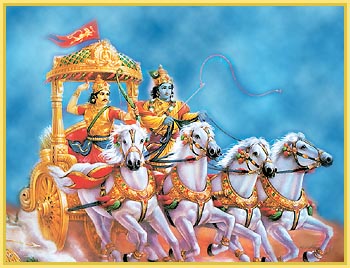
To interpret the society of the country right from the Gita to Gurudev Rabindramath Tagore, to draw meaning from it in our own way and to propagate it is a part of this RSS technique. On being awarded the Nobel Prize in 1913 Tagore got an opportunity to travel the world over. In a visit to Japan during this tour he had severeally criticised nationalism. Japan had been suffering from the fever of nationalism at this juncture. Consequently Tagore had to return to India without delivering his speech.
Mohan Bhagwat is interpreting such a Tagore as a suppoter of the concept of a Hindu rashtra. Vinobaji had correctly commented that this was an organisation a of experts in twisting and presenting in a twisted form everything from Gita, Vivekanand Gandhi to Nehru and Patel. Tagore is just a the latest victim.
References:
1. Kaltak Baputhe.who will now bilge: Dr. Gopal Gandhi, Permanent Black
2. Tagore Selected Essays Rupa Pblications New Delhi
3. Swadeshi Samaj: Ravindranath Tagore (Marathi Translation)
4. Ravindra Rachanavali, Vishwa Bharati Pubication, Shanti Niketan
5. Gandhi Nehru and Tagore Prakash Narayan Natani Pointer Publishers, Jaipur
Courtsey :
